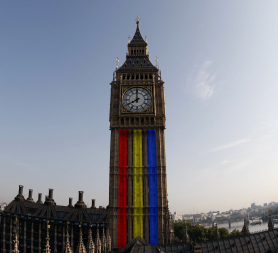What's so bad about a hung parliament?
Updated on 31 March 2010
The United Kingdom has more experience of hung parliaments than many suppose. So are they really - as some believe - nasty, disputatious and short?

In the first half of the 20th century hung parliaments were commonplace in this country. Since 1945 there have been three short-lived minority governments - right up until the last months of John Major's government in 1997.
In fact, single-party majority government is the exception rather than the rule in many democracies. In western Europe there are only three countries apart from the UK - France, Malta and Greece – which at present have a single party in government with a parliamentary majority.
In legislatures based on proportional representation, coalitions are the norm, not the exception. Even within the UK, the devolved assembles of Scotland and Wales have produced several examples of hung parliaments and coalitions in recent years.
And though the received view at Westminster may be that minority
governments are short, unpleasant affairs, there are plenty of examples that
disprove this.
Sweden's minority government successfully tackled the
country's fiscal crisis in the 1990s; and the SNP government in Scotland,
led by Alex Salmond, has been consistently effective.
Read
more from Channel 4 News on hung parliaments
- Hung parliament in the balance in 2010
- Brown could lose and still be PM
- Minority governments, coalitions and pacts
- Hung
parliaments: a short history
Peter Riddell, political commentator and assistant editor at The Times, told Channel 4 News: "You can't say there are more benefits from a hung parliament. You're dealing with a situation produced by the electorate.
"But there are some who would argue that there are benefits if you want to move to a more consensual style of politics."
The fact is that the majority party in a minority government has to negotiate with at least one other party to get its business through parliament – and negotiation is much more likely to take place in the open.
What is more, the smaller party is forced to be responsible because its votes actually affect whether the government wins or loses.
It means opposition parties have a real chance to influence government policy in a way we are not used to in Westminster.





